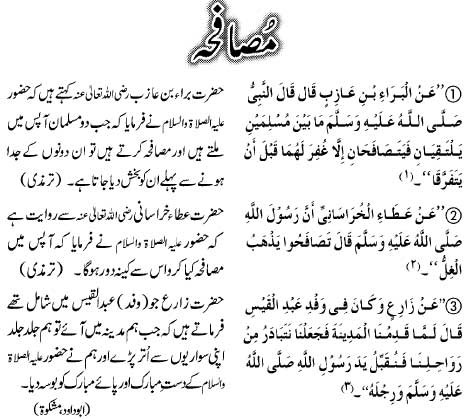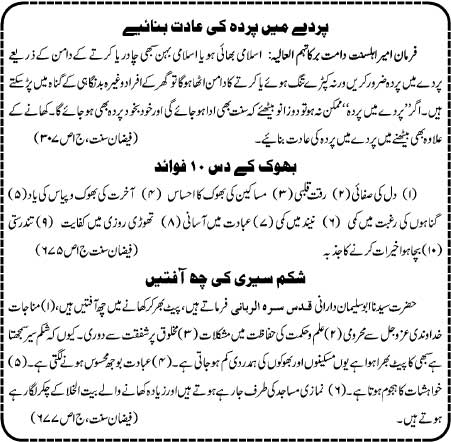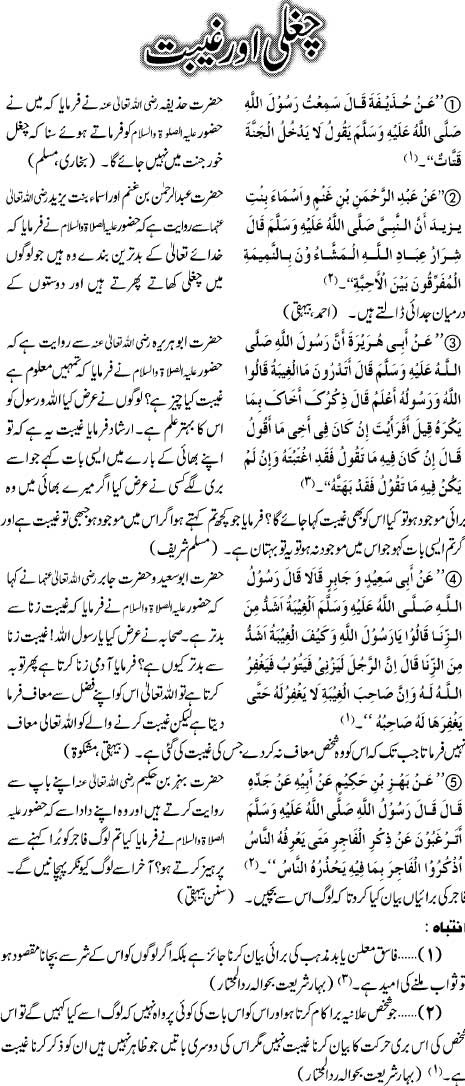
When Ants Sense Danger
WADEA Omrany notes a new scientific miracle in Surah Al-Naml (“Ants”), Verse number 18. This new miracle is about the scientific discovery that ants communicate with each other, especially when informing of impending danger.
God says what means in Surah Al-Naml: “At length, when they came to a (lowly) valley of ants, one of the ants said: ‘O ye ants, get into your habitations, lest Solomon and his hosts should crush you (under foot without knowing it).” (27:18)
The ant reported the imminent danger facing them in four successive stages as follow:
“O ye ants” – this is the first alarm given by the ant to draw the attention of the other ants quickly. On receiving this alarm, the other ants stand alert to receive the other signals given by the same speaker ant.
“Get into your habitations” – here the speaker ant follows up with another signal, ordering the ants to take the next step.
“Lest Solomon and his hosts should crush you” – in these words, the speaker ant shows the reason for this danger to her fellow ants.
“Without knowing it” – the ants, as a reaction to the previous alarms, will make a certain kind of defense, with these last few words. The ant shows its fellow ants that they don’t have to attack the source of danger because it is not from a real enemy; the danger doesn’t aim to attack the kingdom of ants since Solomon and his soldiers don’t know of the ants in their way.
Here’s what science says in this context.
Ants use chemical communication in situations of alarm and defense, when the fast exchange of information is necessary, and when they face expected danger. This alarm is generally expressed by the emission of chemical signals. The protective glands are responsible for the roles of alarm and defense.
The Australian ant is a case in point. When these ants face danger, they secrete some droplets from their protective gland – so that their fellow ants run and make a vibration with their antennas showing that they are in a state of alert.
The first substance detected by the ants is an aldehyde hexanal. This draws their attention. As a result, they agitate and raise their antennae to search for other odors.
When they detect hexanol (the first message was in the form of alcohol), the ants go into a state of alert and run in all directions in search of the source of the problem. When undecanone is emitted, it attracts the ants toward the source of danger and makes them bite all foreign objects in the anthill. Finally, when they come closer to the target, they discern the butyloctenal, which increases their aggression and their readiness to sacrifice themselves.
Chemical communication is the most important method of communication for ants. They give out different kinds of substances, each having a different code denoting a certain message.
These messages are the same as those of the ant in Surah Al-Naml Verse 18.
The substances that an ant gives out of its body in a situation like this are divided into four, with each substance having a certain language and code.
The successive scientific stages of the reaction of the ants are as follows:
* aldéhyde hexanal is the first chemical substance that an ant emits if it senses danger. It is like a siren. On receiving this substance, ants begin to gather at one point where they remain alert and ready to receive the rest of the signals. This identifies with the first phrase uttered by the ant in the holy verse “O ye ants.”
* Then the ant emits the second chemical substance, hexanol. On receiving this substance, the ants begin to run in all directions to determine the source of this substance. The ant that emits the chemical substance should determine the way lest the rest of the ants stray elsewhere. And this is what the ant of Prophet Solomon did when it asked the other ants to enter their habitations by saying ” get into your habitations.” This is an instruction from the speaker ant to its fellows to go in the direction of the habitations. So, it must have determined the way and this is the same as directing the movement of ants in general.
* Undécanone is the third substance that the ant emits.
This substance shows the cause of the danger, and that was what the ant did when it said in the third phrase “lest Solomon and his hosts should crush you (under foot).” In this stage, the ants that receive this substance get ready to face the impending danger.
* In the fourth stage, the speaker ant emits butylocténal. This substance gives an order of defense and determines the kind of defense. And so it was said in the last phrase “without knowing it.” By doing so, the ant prevented the other ants from entering the stage of an attack that would lead to death.
So Prophet Solomon smiled tenderly and mercifully as if saying they needn’t worry as he had seen them and would not allow any harm to befall them.
These scientific facts were mentioned in the Holy Qur’an more than 1,400 years ago.
Israf Kya Ha?

Oaths And Their Atonement
Pledging oaths carries a great significance in Islam. Keeping one’s word is a fundamental part of Islamic ethics. Oaths emphasize an assertion to the ultimate extent. When a person swears by the Almighty on an intention or a plan that he wishes to carry out, it is as if he has called the Creator of the heavens and the earth to be a witness over his word. In a society, oaths have always remained the real means of stability regarding various contracts as well as various social, political, and cultural affairs. Owing to this very reason, the Israelites were reminded by the Almighty in the Qur’an of the covenant they had made with Him through an oath they had pledged. They were warned that they must not break this oath — something over which they have made the Almighty as witness:
Fulfill the covenant of Allah when you have entered into it, and break not your oaths after you have confirmed them: indeed you have made Allah your witness over yourselves; for Allah knows all that you do. (16:91)
In spite of this importance that oaths and covenants occupy, many a time it becomes impossible for a person to honor his word or may feel that fulfilling a certain oath might be instrumental in infringing the rights of the Almighty or of his own self or even of others. In such cases, one can break one’s oath. In fact, in some cases, breaking an oath becomes a moral necessity. In the Islamic Shari’ah, an atonement (Kaffarah) has been fixed for a broken oath. In the following paragraphs, this writer will attempt to explain the Qur’anic law regarding oaths and their atonement.
Allah will not hold you accountable for your inadvertent oaths, but He will definitely hold you accountable for oaths you swear with solemn intention. If such an oath is broken, its atonement is the feeding of ten needy persons, of a standard with which you normally feed your own families or the clothing of ten needy people, or the freeing of one slave. But whosoever cannot afford these should fast for three days. That is the atonement for the oaths when you have sworn. And be true to that which you have sworn. Thus Allah explains to you His verses that you may be grateful. (5:89)
Following is a summary of the directives upon which this verse sheds light:
1. At times, an oath is totally absurd, nonsensical, and meaningless. No doubt, a believer should refrain from pledging such oaths; however, it is a great favor and blessing of the Almighty that He will not hold people accountable for the fulfillment of such oaths, neither in this world nor in the Hereafter.
2. On the other hand, if an oath is pledged with a solemn will and intention or if some contract has been made on its basis or it has an effect on the rights and obligations of the parties involved or infringes upon the injunctions of the Shari’ah, the Almighty would definitely hold a person responsible for it. So a person must not be careless and indiscreet in this matter. On the contrary, he should act in a very responsible manner in this regard.
3. If owing to some reason, a person is forced to break such an oath, then he must atone for it. For this, he is required to feed ten poor people with the standard of food he normally feeds his own family or to give them clothes to wear or to liberate a slave. If he is unable to do either of these, he must fast for three days.
Musafiha Kay Ahkam

Musafiha Kay Ahkam
Showcasing The Shyness Of A Shepherdess
Allah mentions good people in the Qur’an and highlights their good points when He is pleased with them so that we indirectly identify the stamp of approval He has given in order to incorporate that behavior in our own actions.
In the following incident from the life of Prophet Musa, Allah describes a shy young woman’s praiseworthy demeanor. The verses quoted are from Surah Al-Qasas (28: 23-28) and the explanation is from Ibn Kathir’s Tafsir.
“And when he arrived at the water (a well) of Madyan,” which means when he reached Madyan and went to drink from its water, “for it had a well where shepherds used to water their flocks,” meaning he found there a group of men watering, “and besides them, he found two women who were keeping back,” which means, they were stopping their sheep from drinking with the sheep of those shepherds, lest some harm comes to them. When Musa saw them, he felt sorry for them and took pity on them.
“He said: “What is the matter with you?” meaning, ‘why do you not water your flocks with these people?’
“They both said: “We cannot water until the shepherds take…” meaning, `we cannot water our flocks until they finish.’
“And our father is a very old man,” which means, “this is what has driven us to what you see.”
“So he watered (their flocks) for them, then he turned back to shade, and said: ‘My Lord! Truly, I am in need of whatever good that You bestow on me!”’
“Towards the shade,” Ibn Abbas, Ibn Mas`ud, and As-Suddi said: “He sat beneath a tree.”
Ata’ Bin As-Sa’ib said: “When Musa said: ‘My Lord! Truly, I am in need of whatever good that You bestow on me!’ the women heard him.”
When the two women came back quickly with the sheep, their father was surprised that they returned so soon. He asked them what had happened, and they told him what Musa had done. So he sent one of them to call him to meet her father. Allah says:
“Then there came to him one of them, walking shyly” – meaning, she was walking like a free woman, as it was narrated from Umar Bin Al-Khattab: “She was covering herself from him with the folds of her garment.”
Umar said: “She came walking shyly, putting her garment over her face. She was not one of those audacious women who come and go as they please.” This chain of narrators is Sahih.
“She said: ‘Verily, my father calls you that he may reward you for having watered (our flocks) for us.’”
This is an example of good manners: She did not invite him directly lest he has some suspicious thoughts about her. Rather she said: “My father is inviting you so that he may reward you for watering our sheep,” i.e., give you some payment for that.
Imam Sa’di says in his Tafsir, “This (description) points to her proper upbringing and her good character, for indeed Haya is from the most honorable of manners, and is a special trait in women. It also shows that Musa did not assist them to receive payment; but rather, it was because of the honorable and strong nature of his soul and his upright manners.”
“So when he came to him (the father) and narrated the story,” means, he told (the father) about his story and why he had to leave his country.
“He said: ‘Fear you not. You have escaped from the people who are wrongdoers.’”
“And said one of them: ‘O my father! Hire him! Verily, the best of men for you to hire is the strong, the trustworthy.’” One of the two daughters of the man said this, and it was said that she was the one who had walked behind Musa.
Umar, Ibn Abbas, Shurayh Al-Qadi, Abu Malik, Qatadah, Muhammad Bin Ishaq, and others narrated that her father asked her, “What do you know about that?” She replied, “He lifted a rock which could only be lifted by 10 men, and when I came back with him, I walked ahead of him, but he said to me, walk behind me, and if I get confused about the route, throw a pebble so that I will know which way to go.”
Bhook Aur Shikam Seri

Ahadith Qudsi – Superiority Of Monotheism
1: Narrated Abu Dhar (R.A) Allah’s Messenger Sallallahu ‘alayihi wasallam said that Allah Assawajall said: He who comes with a good deed, its reward will be ten like that or even more. And he who comes with vice, his reward will be only one like that, or I can forgive him. He who draws close to Me a hand’s span, I will draw close to him an arm’s length. And whoever draws near Me an arm’s length, I will draw near him a fathom’s length. And whoever comes to Me walking, I will go to him running. And whoever faces Me with sins nearly as great as the earth, I will meet him with forgiveness nearly as great as that, provided he does not worship something with me.
This Hadith is sound and reported by Muslim, Ibn Majah and Ahmad in his Musnad
Another prophetic tradition says: (He who met Allah associating anything with Him, will enter Hell) (Muslim)
2. Narrated Abu Sa’id Al-Khudri (r.a.): Allah’s Messenger (s.a.w.s.) said: None of you will have argued for his right in the world more vehemently than the believers who will do with their Lord about their brethren who were admitted into Hell. The Prophet (s.a.w.s.) added: they will say: O Lord! Our brethren used to offer prayers with us observe fast with us and perform pilgrimage (Hajj) with us. But You cast them into the fire. The Prophet (s.a.w.s) further said: Allah will say: Go and bring out whoever you know from among them. The Prophet (s.a.w.s.) said: The believers will come to them and recognize them by face. Some of them will be those the fire would have seized up to half of their shanks and some of them up to their ankles. They will bring them and say: O Lord! We have taken out those for whom you gave us order. Then the Prophet (s.a.w.s.) said: Allah will say: Bring out whoever has in his heart any belief weighing a Dinar (a coin). Then He will say: Take out whoever has in his heart the belief weighing half a Dinar until He will say: Take out whoever has in his heart the belief that equals the weight of an atom. (This Hadith is sound and reported by Nasa’i and Ibn Majah). After narrating this Hadith, Abu Sa’id Al-Khudri (r.a.): He who does not accept it as true should read this verse:
“Verily, Allah forgives not that partners should be set up with Him in worship, but He forgives except that (anything else) to whom He please, and whoever sets up partners with Allah in worship, he has indeed invented a tremendous sin”. (4:48)
Chugli Aur Gheebat

Allah With The Patient
[ALLAH’S Quran – 2:153] “O you who believe! seek assistance through patience and prayer; surely Allah
is with the patient.”
The Prophet (Peace Be Upon Him) has said :
[Bukhari, Book #70, Hadith #547] “Narrated Abu Huraira: Allah’s Apostle said, “The example of a believer is that of a fresh tender plant; from whatever direction the wind comes, it bends it, but when the wind becomes quiet, it becomes straight again. Similarly, a believer is afflicted with calamities (but he remains patient till Allah removes his difficulties.) And an impious wicked person is like a pine tree which keeps hard and straight till Allah cuts (breaks) it down when He wishes.”

